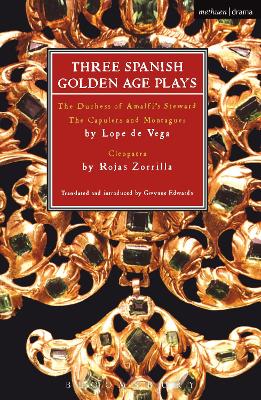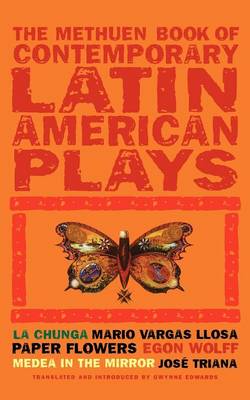Play Anthologies
2 total works
Three Spanish Golden Age Plays
by Lope De Vega, Roja Zorrila, and Gwynne Edwards
Published 24 February 2005
Three classic Spanish plays, made famous by Shakespeare and Webster Two of the most famous and successful playwrights of Spain's Golden Age of playwriting were Lope de Vega (1562-1635) and Rojas Zorrilla (1607-48). From their prodigious output, the three plays in this volume, based on similar sources to Shakespeare's and Webster's versions, provide a fascinating comparison with their Jacobean counterparts. Lope's The Duchess of Amalfi's Steward, in contrast to Webster's play, focuses on the nobility of love, with characters who are complex and appealing. His Romeo-and-Juliet story, The Capulets and Montagues, is a fast-moving mixture of serious and comic, with an ending that will surprise and entertain. Rojas' treatment of Cleopatra, with its rich imagery, emphasises the love theme, held within a knot of jealous relationships. A full introduction by Gwynne Edwards sets the plays in context and provides a thorough study of the individual works.
Book Of Latin American Plays
by Gwynne Edwards, Mario Vargas Llosa, Egon Wolff, and Jose Triana
Published 15 January 2004
A collection of extraordinary, playable translations from across the Latin American continent, including a new Mario Vargas Llosa play In La Chunga by Mario Vargas Llosa a young gambler down on his luck lends his girlfriend to the lady bar-keeper for the night to pay off a debt. Four years later the girl has neither been seen nor heard of, and the gamblers meet to speculate on the events of that fateful night. In Paper Flowers by Egon Wolff, Eva, a lonely middle class woman puts up a tramp for the night out of the kindness of her heart, only to find that he intends to occupy her life as well as her house, reducing her once and for all to his state. Medea in the Mirror by Jose Triana is an extraordinary re-setting of the Medea story in the Cuban revolution of 1959. As Maria, a young mulatto takes her revenge on Julian for abandoning her for someone else - the play becomes a mirror for the events that took place when Castro ousted the Batista regime.

